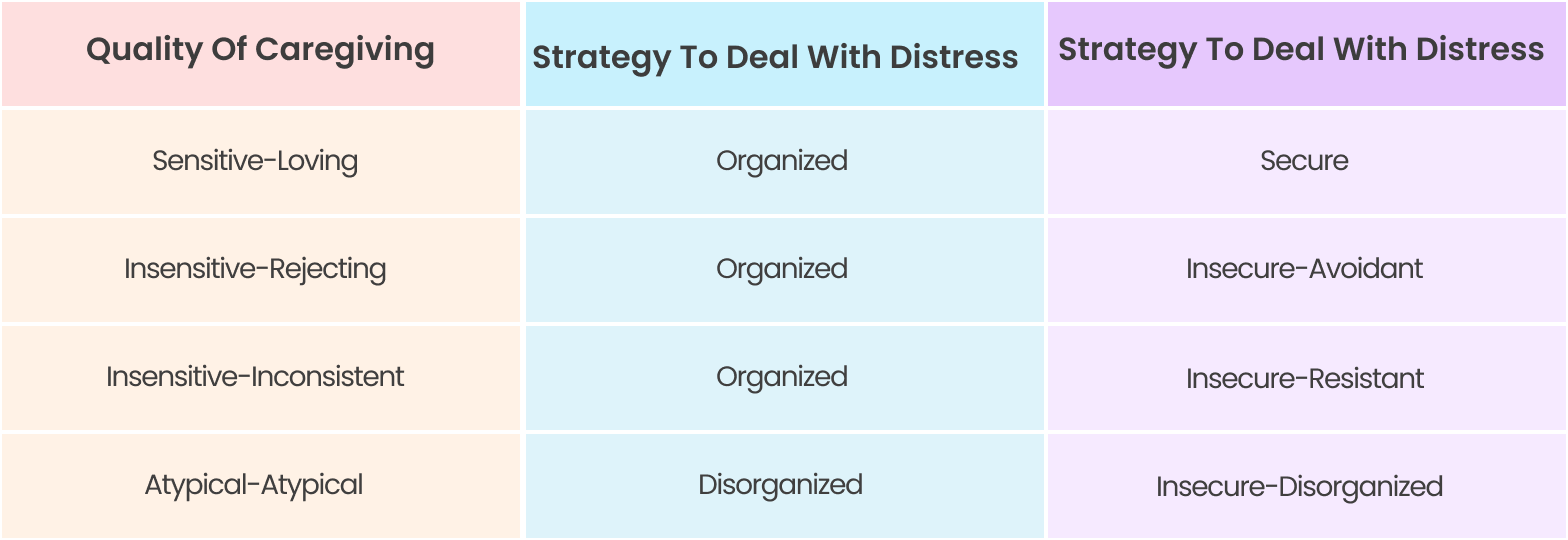You may also like…
"The bond between a parent and their infant is a sacred and powerful connection that sets the stage for a lifetime of love and security."
Infant-parent attachment
Infant-parent attachment is the emotional bond, that develops between an infant and their primary caregiver, typically the mother or father. This is crucial to the infant’s healthy emotional and social development and has long lasting affects throughout the child’s life.
When a child feels emotionally supported, it gives him a better grip on their emotions and helps him or her develop better interactions with the people around. Cognitive development is improved through the exploration of his or her environment that is incited through a sense of security and safety. Psychological well-being is founded through increased self-esteem, confidence and resilience.
How to cite cues of infant-parent attachment problems?
- Resisting separation at bed-time
- Proximity seeking during the night
- Lack of eye contact
- Resistance to physical contact
- Lack of emotional response
- Excessive crying or fussiness
- Withdrawal
It is important to emphasize that mothers of infants with disorganized attachment may display more anxious and frightening responses to their babies’ cry behavior and sleep problems, resulting in a disorganized mother-baby relationship. Secondly, early cry and sleep problems may be an early indicator of early infant regulatory problems, increasing the risk of developing a dysfunctional mother-baby relationship. (Annemieke M. Witte a, 2021). To improve attachment between mother and baby, we must first emphasize on what exactly it is. “Attachment is where the child uses the primary caregiver as a secure base from which to explore and, when necessary, as a haven of safety and a source of comfort.”
How to improve infant-parent attachment?
Diane Benoit in her paper “infant-parent attachment” describes 4 basic types of caregiving that lead to 4 styles of attachment that the baby develops. The following are enlisted
What ways are there of care-giving and how does this affect the attachment a baby forms with his or her parent
- Picking baby up and promptly responding and reassuring him or her
Baby should feel secure in their knowledge that they can truly express their negative emotions. This is secure and organized attachment. These babies seek proximity to and maintain contact with their parent until they feel safe. The child knows exactly what to do when under stress; reach out to the “caregiver”
- Ignoring, ridiculing, neglecting or becoming annoyed at the baby
Babies who feel that their parents or care-givers have rejected their stress stray away from these people and develop a strategy for dealing with stress that is also “organized,” in the way that they minimize displays of emotion while they are with their caregivers. This method is termed as organized because the baby knows exactly what to do; avoid the caregiver in times of need. It is insecure because it increases adjustment problems.
- Inconsistent, unpredictable, “involving ways (expecting infant to worry about you),” amplifying infant’s distress, becoming overwhelmed
This is also an organized method of drawing the baby away from you, these babies display an inflated response to seek attention from the parent or caregiver. It is organized in the way that the child knows exactly what to do with an inconsistent caregiver, he or she exaggerates responses hoping to get attention. This method is insecure because it is associated with an increased risk for “developing social and emotional maladjustment.”








